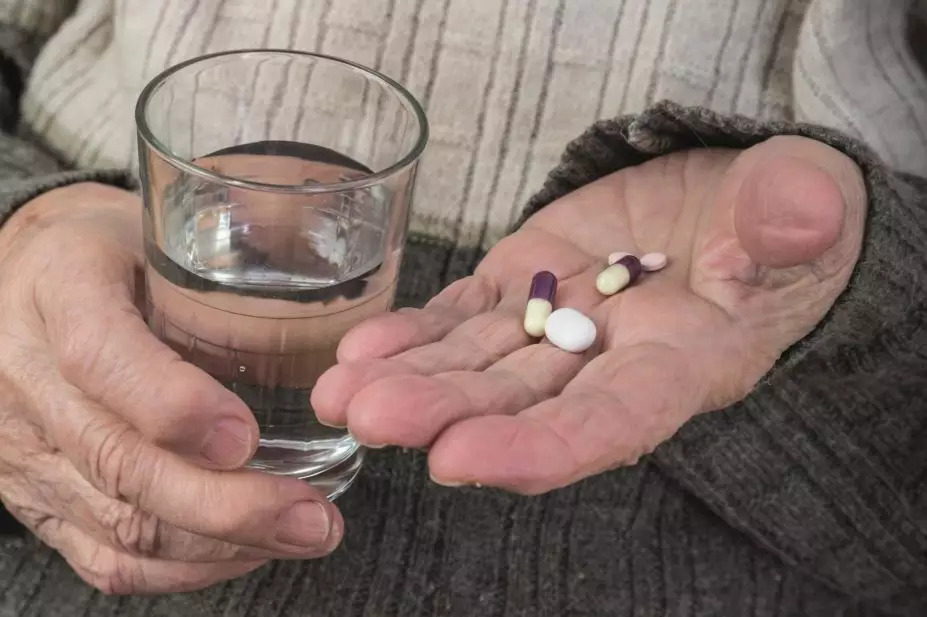
Shutterstock.com
A holistic, community pharmacy-based medicines review service directed at older patients taking four or more medicines can improve quality of life, medicines adherence and reduce the risk of falls, suggests new research.
Researchers recruited 620 patients from 25 community pharmacies in the Lancashire area to participate in the four or more medicines (FOMM) support service, which was run by four community pharmacy chains — Boots UK, the Co-operative Pharmacy (now known as Well), Lloydspharmacy and Rowlands — from September 2012 to June 2013.
The patients, all aged over 65 years, were taking an average of seven medicines and each had an average of three medical conditions. Only 441 patients from the original cohort completed the six-month study, published in the International Journal of Pharmacy Practice
[1]
(online, 6 April 2015).
As part of the service, patients had their medicines reviewed by a pharmacist using an adapted version of the standard STOPP (screening tool of older person’s prescriptions)/START (screening tool to alert doctors to right treatment) assessment tool.
“The most significant finding from the study was pharmacists identifying inappropriate treatments being prescribed for patients,” says Michael Twigg, one of the study authors, who is based at the school of pharmacy at the University of East Anglia, Norwich.
Some 142 recommendations were made to prescribers about 110 patients. Of those recommendations, 24.6% (35 cases) concerned the prescribing of non-steroidal anti-inflammatory drugs for longer than three months and 19.7% (28 cases) concerned prescriptions for proton pump inhibitors that had been prescribed at a maximum therapeutic dose for longer than eight weeks. Other issues raised by the pharmacists related to duplication of therapies (25 cases) or inappropriate prescribing of a combination of medicines (22 cases).
The pharmacists also discussed medicines adherence with the patients, their fall history and how they could reduce their risk as well as manage their pain.
The researchers report that the support service led to a reduction in falls and a significant increase in medicine adherence.
Although patients’ individual pain scores increased, the rise was not significant and there was a reduction in the impact of pain on patients’ daily activities, the researchers found.
However, Twigg urges caution in interpreting the findings. “We don’t know whether the identification of inappropriate prescribing resulted in a reduction in falls or to increased medicine adherence,” he says. “It was the whole package of services provided by pharmacists in the study that led to the reduction in falls; it may be the medicine review as part of the pharmacy service or the targeting of people at risk of falls.”
Twigg points out that the study was not a randomised controlled trial — there was no comparison group — and only “gives us an indication” that the interventions can improve the care of patients. “We can’t be certain until long-term studies are carried out,” he adds.
The study looked at the use of NHS resources by patients — including GP visits, hospital admissions and out-of-hours contact —before and after the intervention was introduced. The researchers calculated that the mean NHS cost per patient pre-intervention was £179.41, rising to £398.76 per patient in the six-month follow-up period — a mean difference of £219.35.
The researchers used the cost-effectiveness threshold used by the National Institute for Health and Care Excellence (NICE) — up to £30,000 per quality-adjusted life year (QALY) gained — to see if the intervention was a good use of NHS resources.
“We calculated that the service cost £32,466.03 per QALY, which was slightly outside NICE’s figure,” says Twigg. “However, we predict that if the service ran for a 12-month period, then this QALY would fall to £11,885.18, indicating the service is a better use of NHS resources.”
Twigg wants to see more studies conducted to analyse the intervention, using a control group and a longer analysis period. “We at the UEA found it nice to work with community pharmacy companies to take this research forward. It is the right direction for community pharmacy research,” he adds.
References
[1] Twigg M.J, Wright D, Barton GR et al. The four or more medicines (FOMM) support service: results from an evaluation of a new community pharmacy service aimed at over-65s. International Journal of Pharmacy Practice 2015. doi:10.1111/ijpp.12196.
You may also be interested in

Tell us about your salary and working conditions

Allowing pharmacy technicians to supervise hospital aseptic facilities would increase risk of ‘catastrophic clinical error’, says PDA
